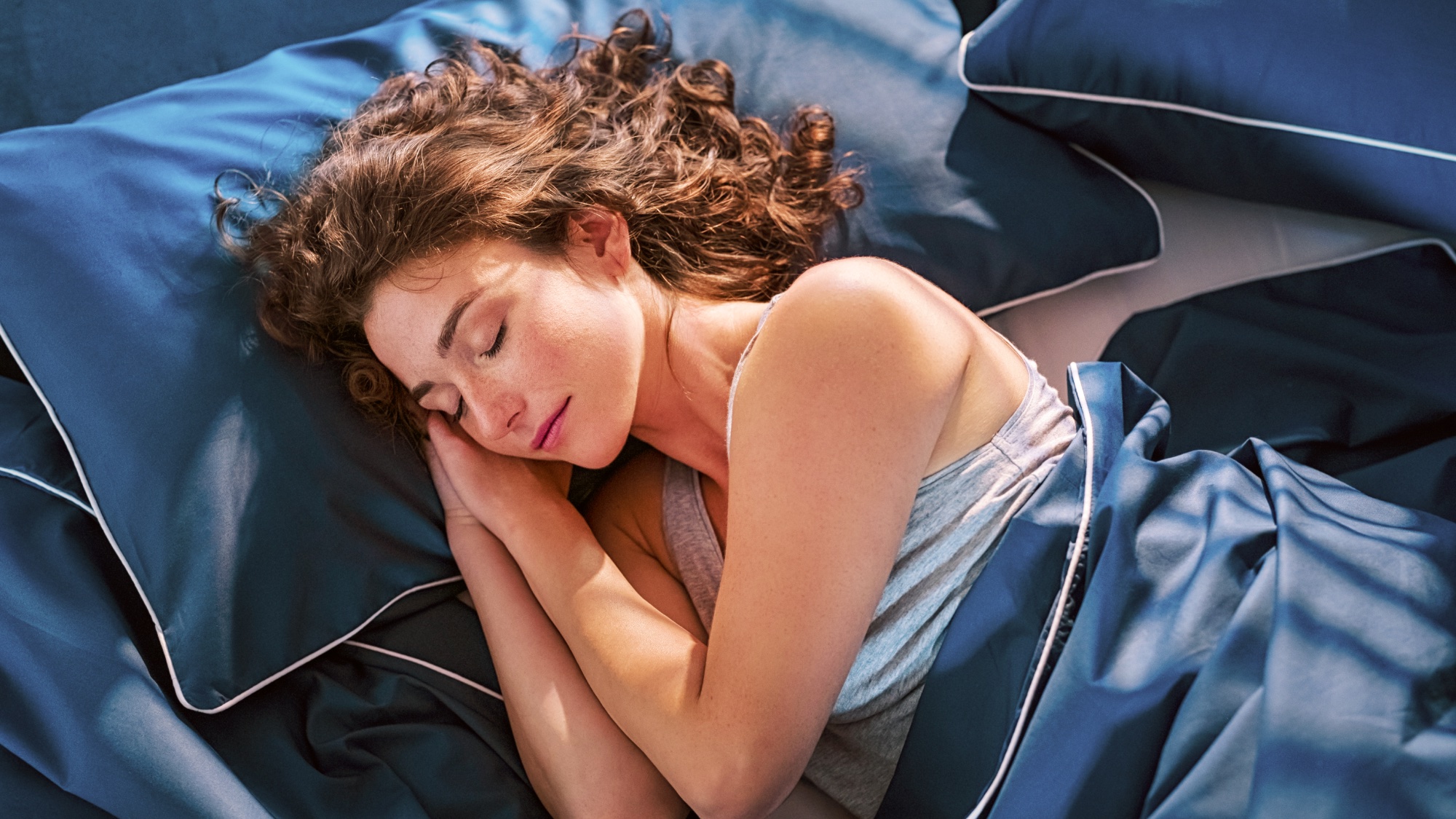
As we enter the New Year, getting good sleep is essential for our physical and mental health – yet research reveals that 54% of Brits are stressed due to poor sleep and 1 in 3 adults in the United States reported not getting enough rest or sleep every day. It’s never been more important to take your sleep seriously, however rest is often the last thing we think of during a busy period, especially the festive season.
Sleep is seen as something we naturally do; but we all know how a poor night’s kip has an immediate negative effect the next day. Which is why sorting your sleep out should be at the top of your New Year’s resolutions list.
We spoke to psychologists, sleep experts, doctors, mindfulness teachers and scientists to find the different (and unusual) ways we can get better rest for 2025. From sleep hypnosis to reading more books, ditching the booze and starting the day with a morning walk, you will find a method that works for you. Think you’ve tried everything? Think again.
Why your New Year’s resolution should be to get better sleep
“As the New Year begins, it’s the perfect time to reflect on how we can prioritise our well-being - and there’s no better place to start than with our sleep. Good sleep impacts every aspect of our lives, from our physical and mental health to our productivity, mood, and even relationships,” says sleep consultant Rosey Davidson. “Yet, it’s often the first thing we sacrifice when life gets busy.”
Nuffield Health 2023 Healthier Nation Index found that on average, Brits are only getting 5.91 hours of sleep a night, less than the recommended minimum of 7 hours. What’s more, 65% of those questioned felt they are not getting good quality sleep and 37% said they were less productive after a sleepless night.
These alarming statistics highlight how a resolution for better sleep in 2025 could have a ricochet impact into improving your mental health, physical wellbeing and productivity. It’s time to reset our relationship with rest.
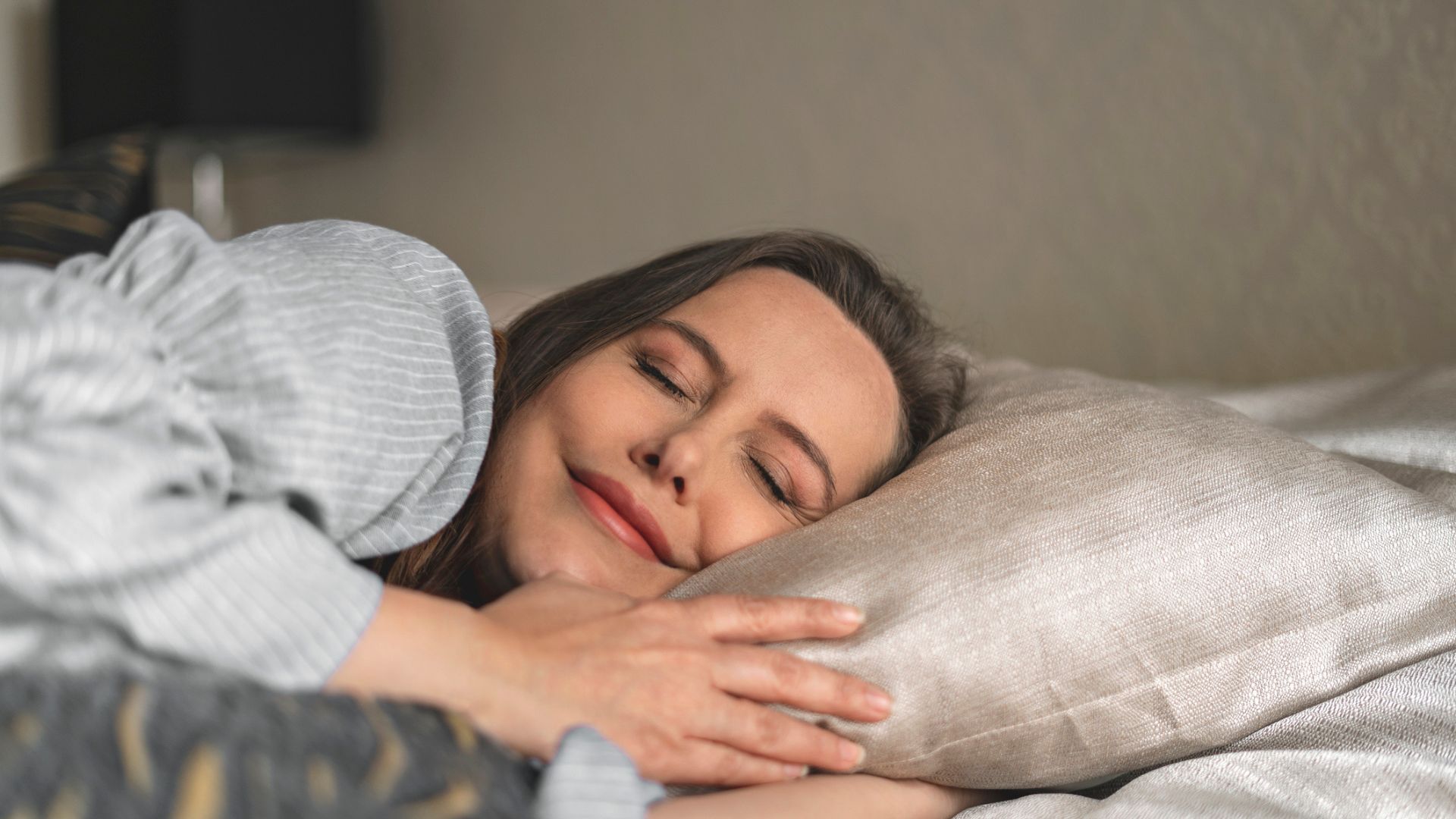
New Year’s resolutions for better sleep
1. Read more books
Screen-free time allows the brain to wind down, so what better way to ditch the blue light than to pick up a book? When a person reads in bed, their heart slows and their muscles release tension, allowing the body to relax, while their mind calms down or can be distracted away from anxious worries.
Reading has been proven to calm the body and mind, helping us slip into deeper sleep. A 2021 study asked an equal number of participants to read a book in bed before sleeping and not read a book before sleeping. After a week, 42% of the readers felt their sleep improved.
Regularly reading before bed is one habit that is budget friendly, easy to do and accessible to people of all ages. So, the book that has been sitting on your bedside table for weeks? Now is the time to pick it up and relax.
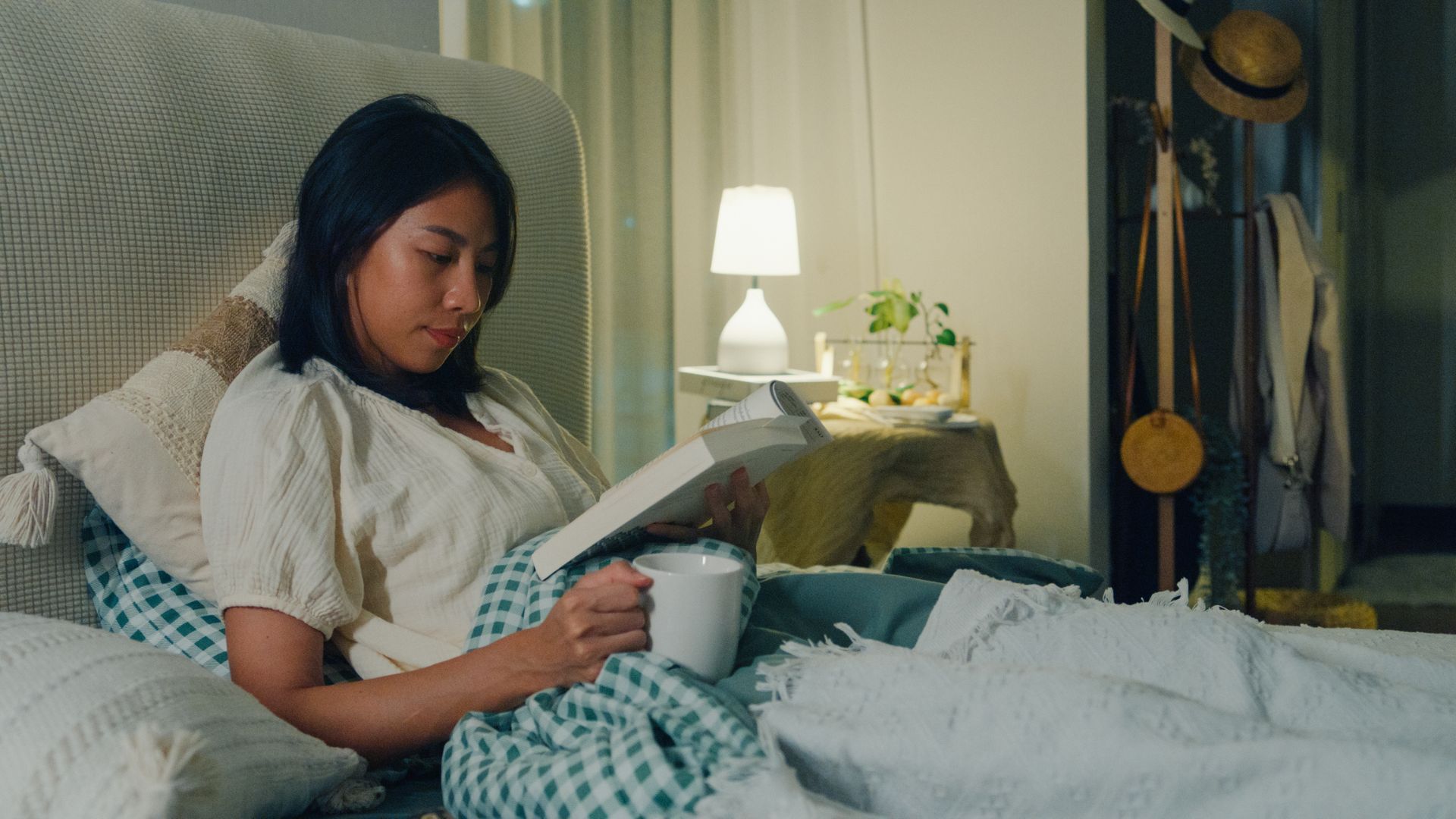
2. Give progressive muscle relaxation (PMR) a try before bed
“This technique involves tensing and then relaxing each muscle group in the body, starting from the toes and moving upward,” shares Maryanne Taylor, sleep consultant and founder of The Sleep Works. This is similar to the Body Scan technique, which our Tom's Guide Sleep Team swear by to fall asleep fast.
“PMR helps reduce physical tension someone may be holding, while also calming the mind, promoting an overall sense of calm and making it easier to transition into sleep. Add slow steady breathing together with the tensing and relaxing to go one step further in lowering heart rate and stress levels. You’ll be surprised by the difference!”
3. Cut down on alcohol
Alcohol consumption can affect sleep quality in various ways. A number of studies have shown that drinking momentarily increases sleepiness, but later causes frequent nighttime and early morning awakenings, which can cause poor sleep health leading to irritability, weight gain, headaches and negatively impacted mental health among other things.
“While alcohol acts as a sedative and may help people fall asleep faster, it disrupts the brain’s natural sleep architecture and reduces deep sleep - the most restorative stage of sleep,” says Dr Dr Faye Begeti, neuroscientist and sleep expert.
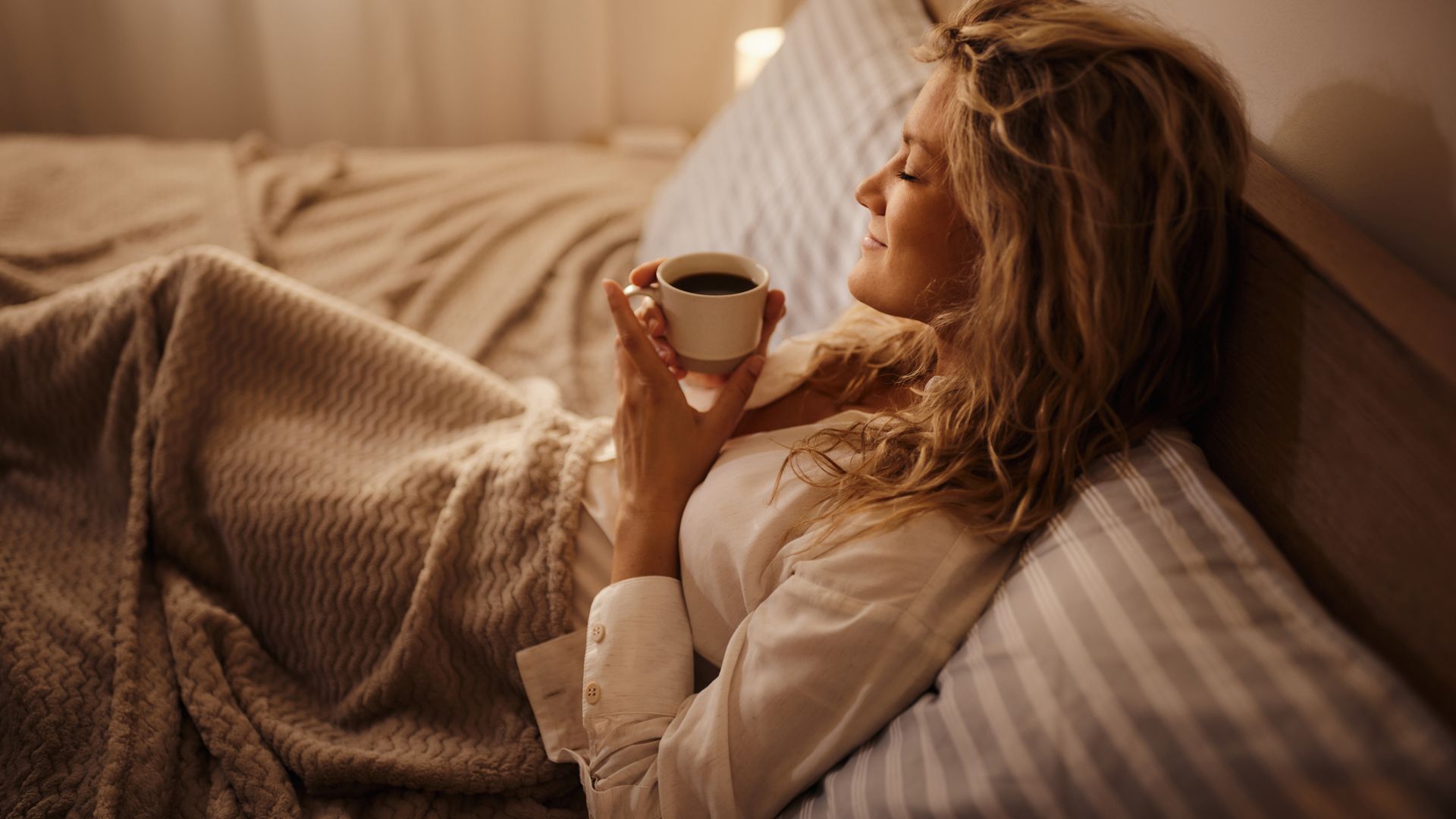
She continues, saying, “As part of my neurology practice, I encourage people to ensure that they are drinking alcohol mindfully. This means reserving it as a reward for special occasions rather than drinking daily out of habit or using it as a maladaptive coping mechanism to deal with difficult emotions.”
Dry January can be a great opportunity to reassess your relationship with alcohol and explore if it is affecting your sleep, as well as your health and wellbeing. If you enjoy alcohol but want to get good sleep, ensure you avoid this one drink this festive season.
4. Reduce screen time
According to Dr Faye Begeti, neuroscientist and sleep expert, the rise in electronic device use before bed is a major culprit behind widespread sleep disturbances. In a recent survey commissioned by Holiday Inn Express and conducted with input from Dr. Begeti, 88% of Brits admitted to using electronic devices within an hour of bedtime—an unsettling statistic when it comes to quality sleep. But why should we turn off?
“While it was once believed that blue light from screens significantly suppressed melatonin and interfered with sleep, recent research suggests that the brightness of screens is typically too low to have a major impact,” says Dr Begeti. “What matters more is the content we engage with and our behaviours around screen time.
“The best way to change a problematic habit is to replace it with a better alternative.” Too much stimulating content, and our brains can struggle to switch off. This is when your reading resolution will come in handy!
5. Try sleep hypnosis
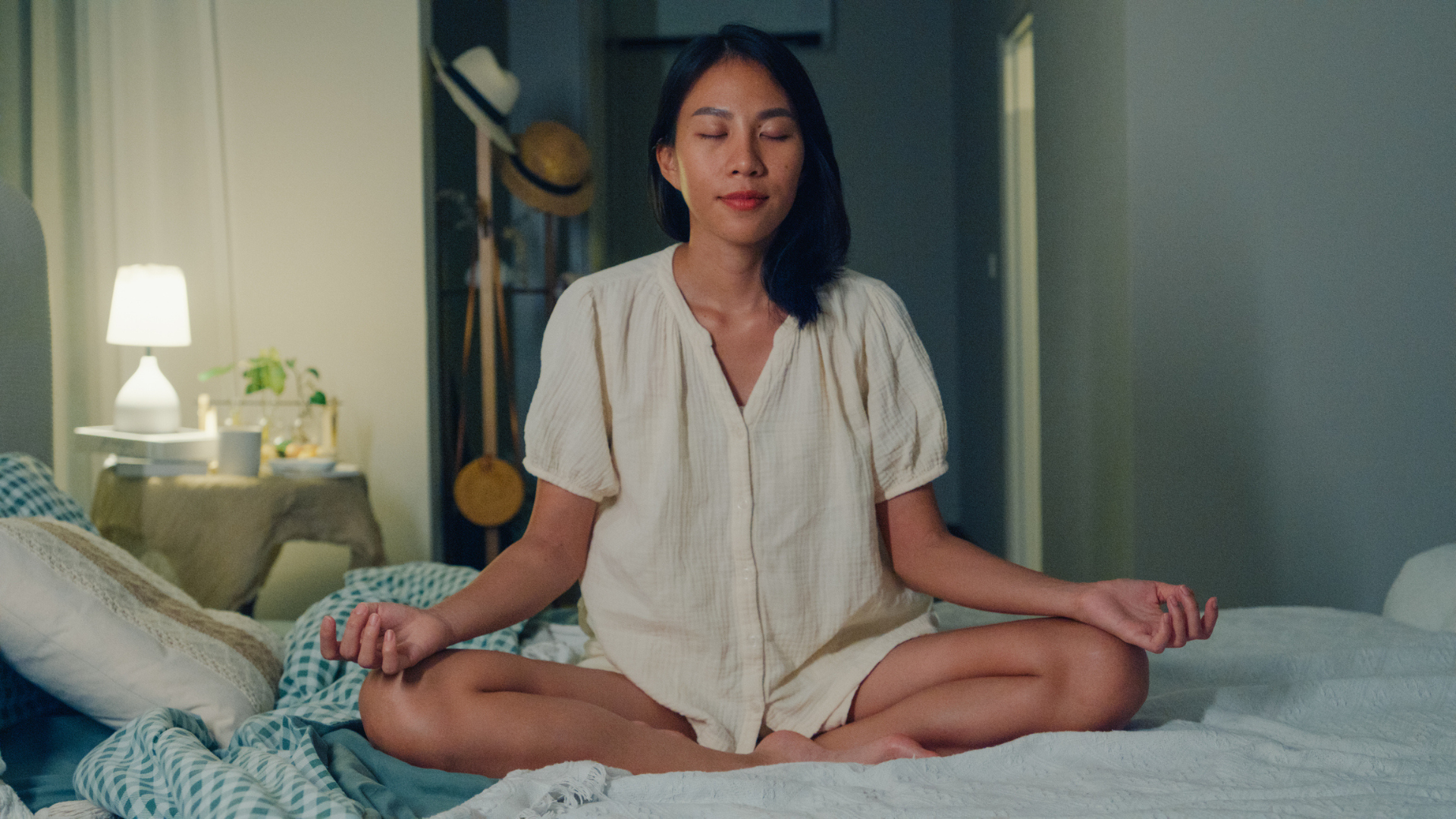
Hypnosis uses guided imagery and calming suggestions to influence our subconscious mind (the part of our brain that is processing thoughts and emotions even when we are not aware of it).
Joanna Rodrigeuz says, “Listening to a sleep hypnosis before bed or whilst drifting off to sleep can help for a couple of reasons. Firstly, our brain is in alpha wave, so it is more susceptible to suggestions and secondly, the process of listening to the suggestions for relaxation help to lower cortisol levels and gently guides the brain into slower brainwave states (theta), which are essential for deep relaxation and eventually sleep.”
6. Consider a ‘sleep divorce’
Have a bed partner that causes you to lose shut-eye? Then a ‘sleep divorce’ may be the answer. A ‘sleep divorce’ is when a couple chooses to permanently sleep in separate beds or rooms to improve the quality of their rest, often due to disruptions like snoring, different bedtimes, or movement during sleep.
“It might feel isolating at first, but in reality, it can improve your health and your relationship. By choosing to rest apart, you’re improving your sleep quality, reducing irritability, and ultimately enhancing your overall well-being,” advises Dr. Sham Singh, sleep expert and psychiatrist at WINIT Clinic.
He adds, “When both partners are getting the restorative sleep they need, they’re less stressed, more patient, and better able to connect emotionally. It’s about prioritizing health - yours and your relationship’s - by making sure you both get the rest you deserve.”
7. Start everyday with a walk outside
The amount of daylight we get has a huge impact on our sleep. Natural light regulates our energy levels by suppressing melatonin and stimulating serotonin production. Serotonin is the hormone responsible for making us feel energized and motivated, while melatonin makes us feel sleepy.
By starting your day with natural light and fresh air, you can expect a boost in your energy and mood, as well as your circadian rhythm being regulated (otherwise known as your body clock). This means you’ll naturally feel sleepy in the evenings, making it easier to fall asleep.
A study has found that the time of day you get your sunlight is actually more important than the time spent in it, with morning sunlight improving sleep efficiency, the ability to fall asleep and stay asleep.
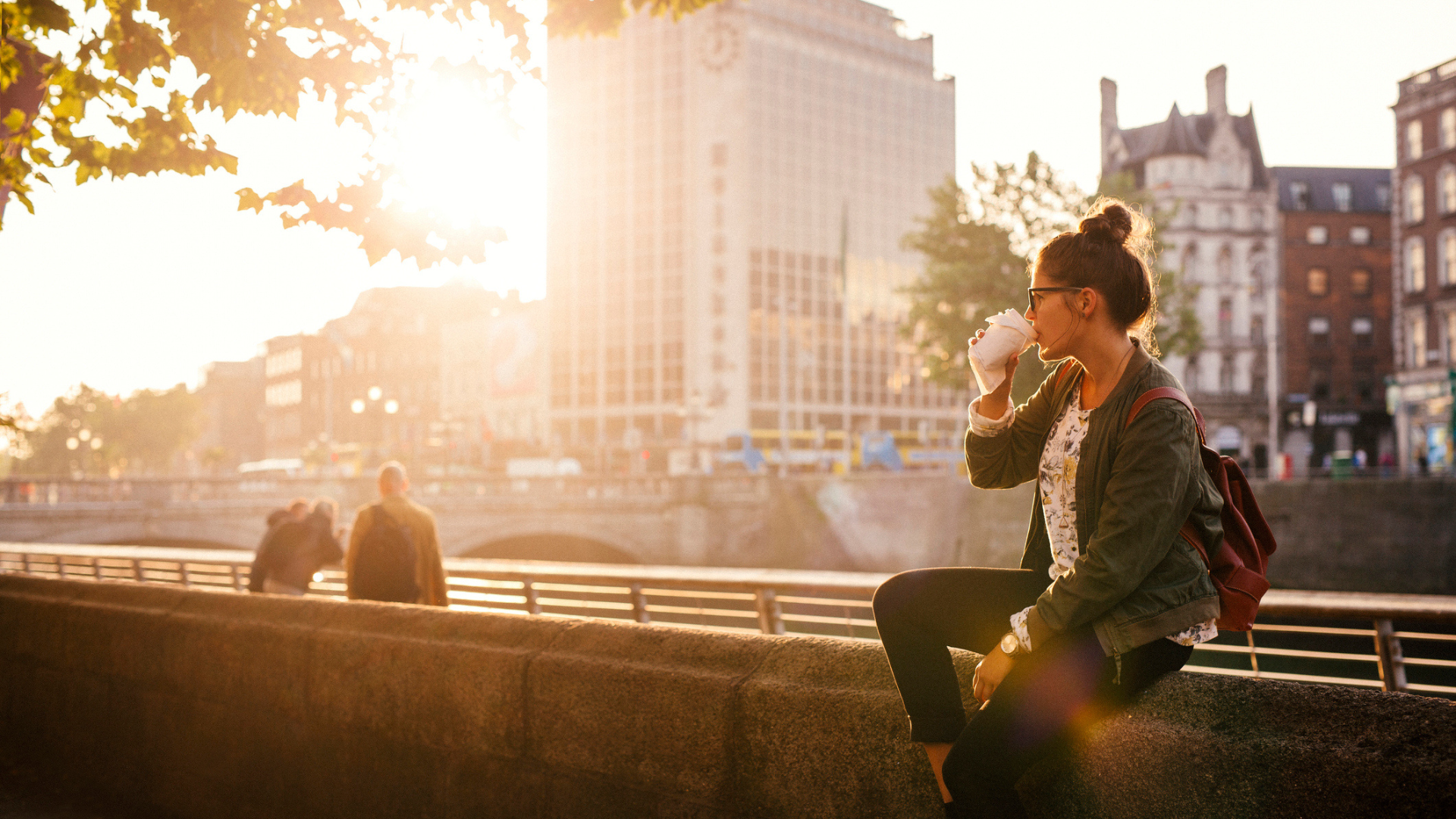
Tips to sleep better in January
Searches for "why can’t I sleep" peak during the first week of January, indicating a collective post-holiday reckoning with poor sleep habits. The dark winter months don’t help and many people experience the January blues, which can increase anxiety. If you’re struggling, here’s some top tips to get better sleep:
Stick to a consistent schedule
A morning alarm doesn’t have to cause despair! Instead, a consistent sleep schedule can be a great opportunity to harness the power of our own rest. The science behind the hormones our brains release for morning and night back this idea up.
“Going to bed and waking up at the same time each day allows your body to become accustomed to a predictable and consistent routine, which helps improve sleep duration and quality,” says Carolina Goncalves, the Superintendent Pharmacist at Pharmica.
“This then feeds into healthy endocrine functioning, which is essential for regulating hormones like cortisol, insulin, and growth hormone. This happens because a consistent sleep schedule helps maintain the body’s circadian rhythm, which controls the release of these hormones at the right times to support metabolism, stress management and tissue repair during sleep.”
Create a nighttime routine
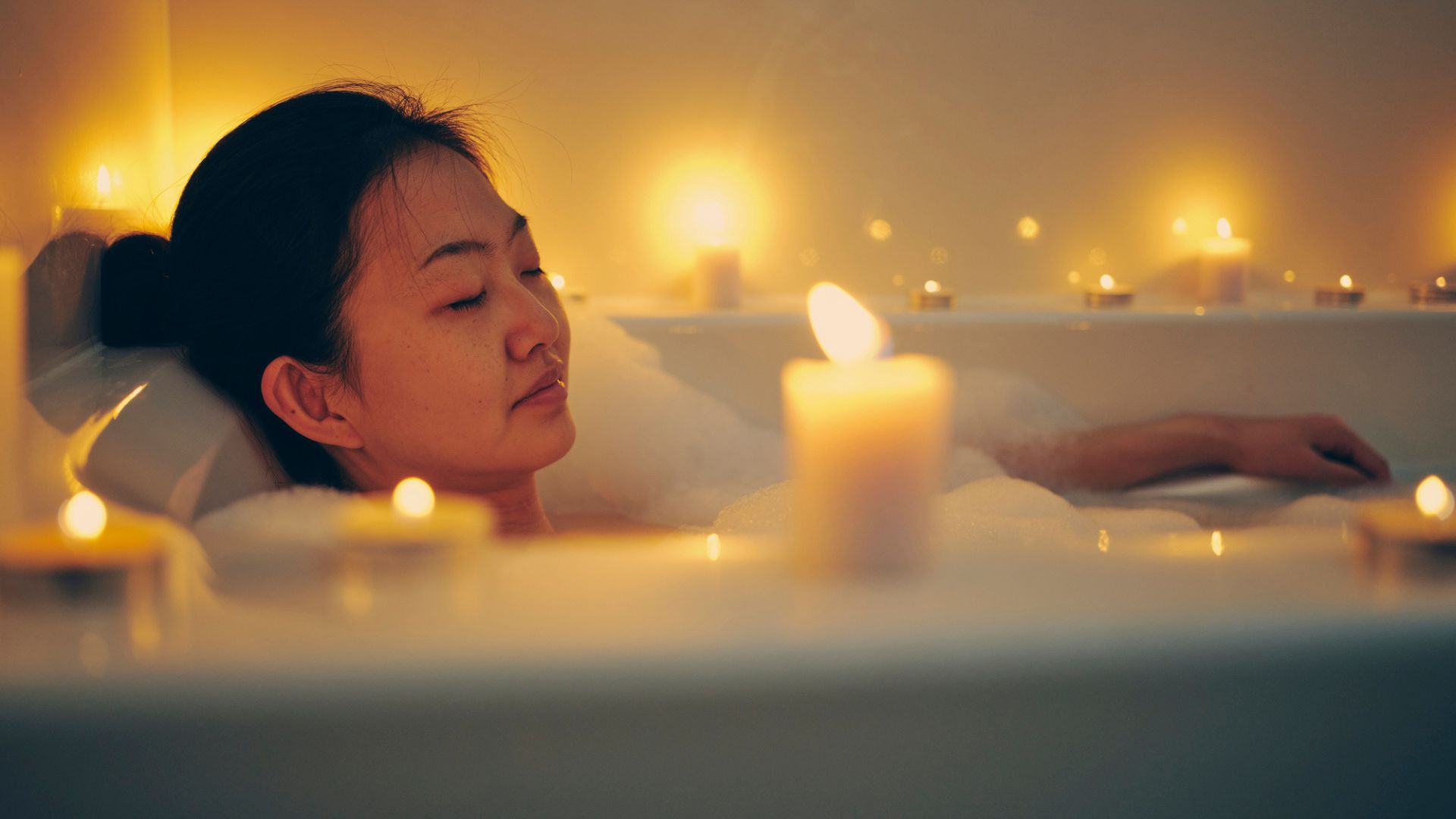
Most parents recognise the benefits of a bedtime routine for their children, but what about for adults? Try craft a nighttime routine that can be both a physical and mental wind-down before bed and discover the benefits. Focus on doing the same activities every night before bedtime, as this act can reassure the brain that you're 'safe', helping it to switch off.
Davidson says “By signalling to our bodies that it’s time to relax, we can help shift from the stress of the day into a state that promotes deeper, more restorative sleep.”
Part of the routine could be switching to candlelight or dimming the lights. Turn off your screens one hour before bed and light candles instead. It’s romantic, relaxing, and great for limiting blue light exposure. Or if you struggle to sleep, you could try the ‘five-minute mattress dance’. Lie down, stand up, and lie down again five times before finally staying in bed. It can trick your body into recognising when it’s time to settle.
Create a comfortable bed
Nothing will get you through the winter like a cozy, comfortable bed. But as well as being comfortable, you need it to support your body, too. This will stop you tossing and turning through the night and help you reach deeper sleep.
Invest in the best mattress for your sleep needs and find the best pillow for your sleeping position. Ensuring your spine is aligned and you don't feel any pressure points when you sleep is essential. Alongside this, treat yourself to some new bedding for the ultimate hotel-luxury feel.







